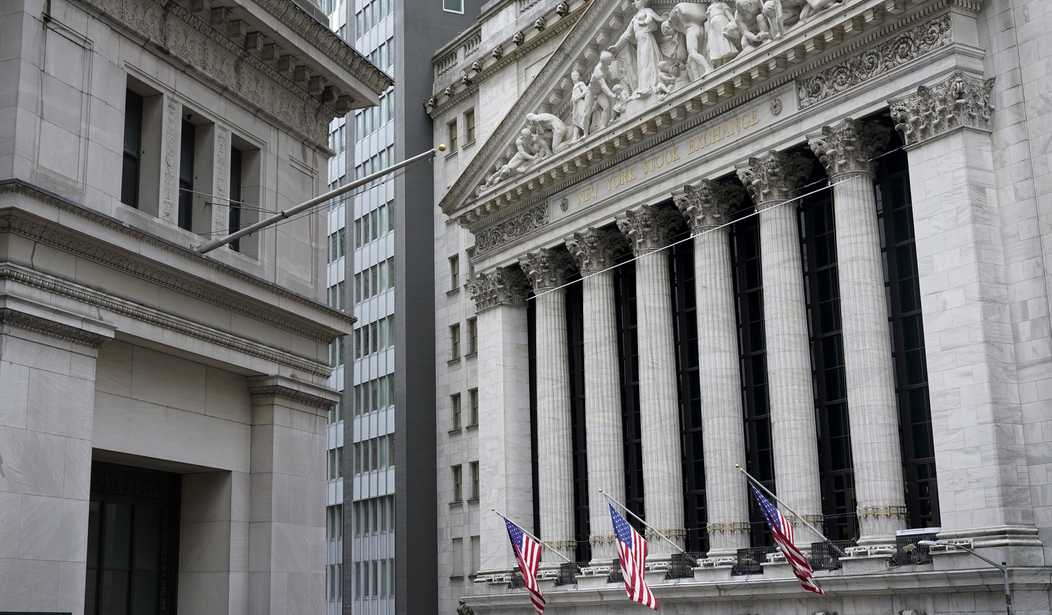“Scammers” and “vultures” are some of the names that Elon Musk has called short sellers. But few would describe Michael Burry as a vulture and his correct investments against the housing market as profiled in "The Big Short.” Short sellers can serve as investor advocates and continued calls from Democrats for new laws and regulators can hinder this valuable market tool.
During the GameStop stock market surge at the end of January, investors, the media, Congress, and regulators watched as social media users and retail shareholders of the stock collectively enacted a short squeeze. The squeeze caused the stock price to rise much higher than the price several hedge funds bought, expecting the stock to fall lower than their initial purchase price. The successful short squeeze transformed from a “Main Street v. Wall Street” investing strategy, into an overarching narrative deriding the entire practice of short selling and short sellers.
Democrats on the House Financial Services Committee have hosted a hearing examining potential restrictions on short-sellers, while the Securities and Exchange Commission has begun considering increased disclosure requirements for short sales. However, government intrusion – whether it is through regulating short selling or instituting a financial transaction tax – would only harm mom and pop investors.
To sell a stock short, investors borrow shares from a broker and sell the shares they borrowed immediately in the open market. On a later date, they repurchase the same number of shares they sold (hopefully) at a lower price and return them to the broker. Investors profit from the difference between the cost of the shares borrowed and the shares repurchased.
Recommended
CEOs and investors deride short-sellers who earn their profits when most investors and companies are seeing their stocks fall. During episodes of market turmoil, government regulators often implement outright bans on the practice of short-selling. European regulators implemented short-selling bans during March of last year in Austria, Belgium, Greece, France, Italy, and Spain. And the SEC banned short-selling during the 2008 financial recession.
However, short selling incentivizes investor-due diligence to uncover fraud and evaluate markets and companies. Their function supports price discovery and liquidity during times of economic crises and even uncovers significant fraud that financial auditors and regulators failed to spot.
Short-selling firms like Hindenburg Research, Spruce Point Capital Management, and Muddy WatersResearch publish research reports with high-level detective work justifying their financial condition. These reports have been instrumental in uncovering some of the largest corporate frauds in history. Jim Chanos, president of Kynikos Associates, notably shorted Enron after observing significant insider selling and questionable energy trading contract disclosures in their regulatory filings. Recently, Muddy Water's Carson Block sold short Chinese café chain Luckin’ Coffee and published an anonymous 89-page research report on Twitter. Short analysts recorded 11,260 hours of store traffic video and correctly found that Luckin’s revenue numbers must have been inflated given the lack of foot traffic. The stock plummeted, and the Nasdaq delisted the company from its stock exchange.
Like any investors, short-sellers are at risk when they make an investment, and they are not always correct. During the GameStop rally, Melvin Capital lost almost $5 billion of capital from its short and hedge fund manager, Bill Ackman, lost $1 billion on a bet against Herbalife. Short sellers also face legal risk from a company’s management teams that often file defamation lawsuits against short sellers and their reports.
Regulating or restricting short-selling sets a dangerous precedent by removing an outside check on public companies and their business practices. When regulators and lawmakers seek to ban short-selling during times of market turmoil, economists have proven that outright bans have little to no effect on market stabilization.
Economists at the New York Federal Reserve discovered that short-selling bans implemented during the 2008-2009 financial crisis were ineffective in supporting the stock market and came with significant negative externalities. The report concluded that short-selling restrictions did little to slow the decline in the prices of financial stocks, and instead increased the trading costs of equity and options markets.
Although short-sellers are easy to blame during market downturns, they serve as a valuable tool for financial markets. Seeking to further regulate short sellers will harm all investors who should have access to use every tool available before making an investment decision. If lawmakers and regulators restrict short selling, it could prevent analysts from discovering the next “big short.”
Daniel Kim is a Federal Affairs Associate with Americans for Tax Reform.

























Join the conversation as a VIP Member